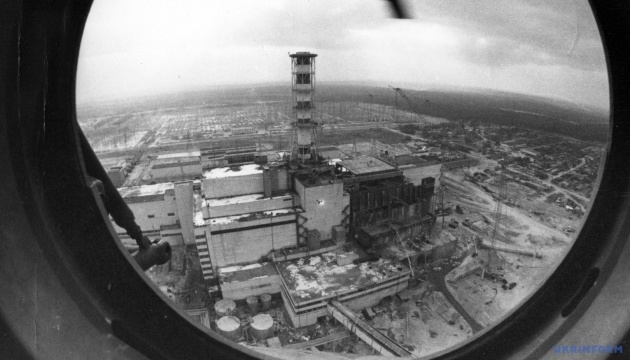
Zelensky calls on world to put pressure on Russia to liberate ZNPP
The Chornobyl disaster demonstrated to the world that deadly threats can appear very quickly.
Ukrainian President Volodymyr Zelensky wrote this on Telegram on the 38th anniversary of the Chornobyl disaster, Ukrinform reports.
Video: Official Telegram channel of the President of Ukraine
"Radiation sees no borders or national flags. The Chornobyl disaster demonstrated how rapidly deadly threats can emerge. Tens of thousands of people mitigated the Chornobyl disaster at the cost of their own health and lives, eliminating its terrible consequences in 1986 and the years after," Zelensky said.
He stressed the need to protect all nuclear facilities in Ukraine from Russian strikes.
The president recalled that after Russia launched its full-scale invasion of Ukraine, it occupied the Chornobyl Nuclear Power Plant for 35 days in 2022: "Russian soldiers looted laboratories, captured guards and abused personnel, as well as used the station to launch further military operations."
In addition, for 785 days now, Russian terrorists have held hostage the Zaporizhzhia NPP, Zelensky said.
"And it is the entire world's responsibility to put pressure on Russia to ensure that ZNPP is liberated and returned to full Ukrainian control, as well as that all Ukrainian nuclear facilities are protected from Russian strikes. This is the only way to prevent new radiation disasters, which the Russian occupiers' presence at ZNPP constantly threatens," he said.
He also concluded: "We remember the dedication of the people who saved lives in 1986. We appreciate everyone who is helping to save lives right now."
On Friday, April 26, the world marks the 38th anniversary of the largest man-made disaster in human history.
On April 26, 1986, at 01:23, a powerful chemical explosion ripped through power unit 4 of the Chornobyl nuclear power plant, obliterating part of the reactor unit and the engine room.
As a result of the blast, a fire broke out, spreading to the roof of power unit 3. Firefighters were tackling the blaze until 05:00. However, the fire was fully put out inside unit 4 only on May 10, after most of the graphite had burned out.
As a result of the disaster, a radioactive cloud was formed, covering the territories of modern-day Ukraine, Belarus, and Russia, as well as the areas across many European countries, including Sweden, Austria, Norway, Germany, Finland, Greece, Romania, Slovenia, Lithuania, and Latvia. According to the International Nuclear Events Scale (INES), the accident was classified at level 7, which is the highest.

